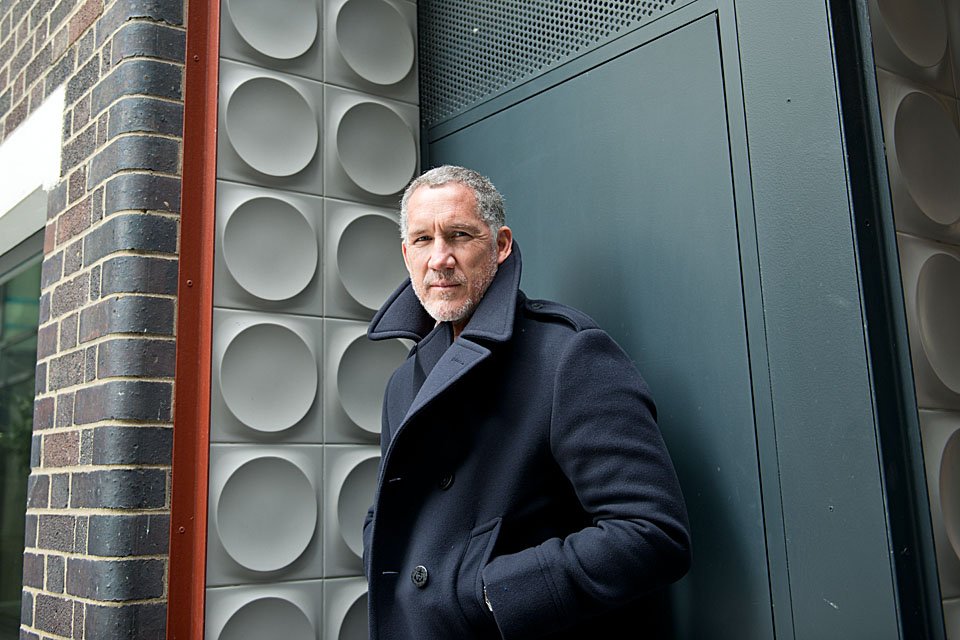The man who would be king: Why adland’s El Presidente has ‘zero fear’ of getting fired
Looking back, Eduardo Maruri is glad he didn’t run for president. The Ecuadorian, now 52 years old, claims he had a good chance of being elected in his home country, but ultimately did not feel he was in a position to pull off the role. “You’re only president once, so you have to make sure you do a good job,” he says.
The close brush with presidency is just one twist in a colourful career path that has carried Maruri – nicknamed El Presidente – through the contrasting worlds of advertising, politics and football, to his latest role as European boss of ad agency Grey.
A foray into politics
Despite his flirtations with other industries, Maruri has always been an ad man at heart. His first move in the industry came in 1991 when, tired of a corporate job at Gillette, he decided to set up an advertising agency with his father Jimmy.
“We quickly gained the reputation of being the most creative agency in the market,” says Maruri, who is never one to play down his achievements.
While working at the nascent firm, Maruri became president of Ecuador’s Chamber of Commerce, and he soon established a foothold in politics.
El Presidente formed Uno (short for A New Option), a brand new political party. He describes its approach as pragmatic, not bound by ideology, but says its policies were largely centre-right.
Uno’s ascendency catapulted Maruri into the spotlight, and his prospects for the presidency began to gain pace until, eventually, he decided to pull the plug. Maruri insists that, despite having enough support, he would not have been able to carry out the role effectively within the country’s ruling establishment. But El Presidente’s foray into politics was not over yet.
“I decided to run for congress, because from congress usually you can make some changes,” he says. “That’s when the new president decided he wanted to rewrite the constitution of Ecuador.”
And so Maruri became one of the 80 people responsible for writing Ecuador’s new constitution. He was, as he puts it, one of the “founding fathers of the new republic”.
A footballing fiasco
With the ink barely dry on Ecuador’s new constitution, Maruri decided to turn his hand to another passion: football.
The politician was elected president of Barcelona Sporting Club, and set out on a mission to drag Ecuador’s most successful football club from its long-running title drought.
But Maruri’s reign proved disastrous for the club, which suffered its worst ever season and only narrowly avoided relegation.
“Football is more passionate than politics; you could feel the hate in the stadium,” he says of his turbulent time in charge.
Nevertheless, Maruri says his failure at Barcelona was a reminder of how vulnerable people can be, and he considers it a valuable experience.

A return to adland
In 2010, Maruri returned to his agency and, five years later, sold a majority stake to advertising giant WPP.
“I wanted to prove to my kids that I wasn’t a failure, because I felt like a failure after Barcelona,” he says. “So advertising and creativity gave me that sense of redemption, that sense of achievement again.”
As part of the deal, Maruri joined WPP-owned agency Grey as head of its Latin America division, before starting as Europe chief executive in January.
In the face of growing disruption across the advertising industry, Maruri is determined to put creativity at the heart of Grey’s offering, and he wants the top roles to be held by creatives rather than suits.
Maruri also recognises that advertising firms need to be simpler and leaner if they are to adapt to the changing demands of clients.
His words echo those of WPP boss Mark Read, who has begun a transformation plan to merge divisions and slash jobs.
El Presidente talks highly of the ad giant’s new chief executive. But what does he think of founder Sir Martin Sorrell, who left WPP abruptly last year amid allegations of misconduct? Maruri flashes a quick glance at his PR, and declines to comment.
Itchy feet
For Maruri, Brexit poses the biggest challenge to advertising. “I think having different cultures, different opinions and different experiences brought into our industry will make it better,” he says.
“If Brexit prevents the UK industry from having more talent from around the world, I think it will miss the bus on the evolution of creativity.”
Regardless of the outcome of Brexit, however, it seems Maruri will be looking for another change of scene before too long.
“Maybe I’m going to go back into politics,” he says. “Maybe I'll do something else in the industry, maybe I’ll start my own business again – I don’t know.” The only certainty is that he won’t be returning to football.
Maruri believes his journey through politics and football have stood him in good stead for the world of advertising.
“I think one of the good things is that I have zero fear of getting fired,” he says. “After leaving all this pressure, everything is manageable; no crisis is too big.”
But with such a varied career behind him, doesn’t life as an ad man in London feel pedestrian?
“It’s not my comfort zone yet,” insists Maruri. “I’d say in two years, maybe. I’ll see what happens.”